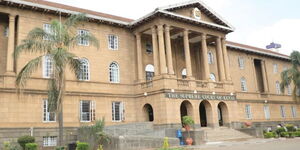Kenya Revenue Authority (KRA) has initiated a crackdown to secure more than Ksh 5 billion from several high net worth individuals across the country. This process is predicted to last 3 years and will be multi-faceted, involving intelligence personnel and the Assets Recovery Agency (ARA).
KRA has so far picked out High Net-Worth Individuals (HNWI). These are private citizens whose gross annual incomes are between Ksh 350 million and Ksh1 billion. A sizable chunk of these persons is reported to be among persons hiding a massive swathe of their earnings from the State.
In a bid to boost national reserves, the tax authority will endeavor to stamp out evasion, especially by those raking in high incomes. Top earning professionals such as doctors, lawyers as well as players in the real estate field are in the scope of the taxman’s mission.
Within this plan that is expected to last up to June 2024, KRA will apply a variety of tactics including deactivation of Personal Identification Numbers (PINs), freezing of assets, and issuance of travel bans for cases featuring severe notoriety.
In addition to that, the organization has been conducting random sample audits on persons and commercial entities alike. This conventional method is reported to be imperative in achieving the set goals for revenue collection now and in the future.
The financial authority is projected to bring in about Ksh1.28 billion in additional revenue from 20 tycoons it listed in the current year ending on Wednesday 30th June 2021. Starting on Thursday 1st July, a new year begins for KRA. It is expected that through the above-mentioned techniques KRA will raise Ksh 1.4 billion for the country’s financial reserves.
In 2022, estimates of revenues from this strategic plan will be in the region of Ksh 1.54 billion. In 2023, KRA anticipates collecting Ksh 1.7 billion. About 15 to 20 billionaires are targeted each year.
KRA is presently converging its best efforts to alleviate the aftermath of the recent poor collection in revenue that was largely attributed to the ongoing pandemic. Nonetheless, the country is said to be on a steady path of economic recovery.
Kenya is well-acquainted with the notion of a significant group of elite super-rich persons that hide their wealth in trusts and various consolidation of firms to evade or downplay taxes. In the past, a number of affluent and politically connected Kenyans appeared in the Panama Papers, a leakage that exposed the rogue offshore finance industry in April 2016.
To counter such practices of tax evasion, KRA has sought additional funding to outsource 1,000 intelligence and enforcement officers. This aimed at reinforcing the quality of inquisitions and investigations of wealthy persons and corporations.
"We shall seal revenue leakages through a multi-faceted program as we deploy our robust intelligence network to penetrate corruption and tax evasion cartels to bring to bear the consequences of evading taxes and engaging in corrupt practices," declared KRA commissioner-general Githii Mburu.
The KRA Enforcement Unit has been looking into databases that include records such as bank statements, accrued and paid bills as well as registration details of high-end cars and aircraft. This crackdown on the rich is part of Kenya’s commitment to the International Monetary Fund (IMF) to appropriate unpaid taxes from high-net-worth persons to complement national revenue.












